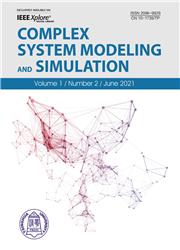Low-Carbon Economic Operation Optimization of Mine Integrated Energy System Considering Energy Supply Uncertainty
引用次数: 0
Abstract
Mine integrated energy system (MIES) can promote the utilization of derived energy and achieve multi-energy complementation and ecological protection. Now it gradually becomes an important focus for scientific carbon reduction and carbon neutrality. To reduce the impact of uncertain prediction differences on the system during the process of using mine derived energy, a low-carbon economic operation strategy of MIES considering energy supply uncertainty is developed in this paper. Firstly, based on the basic structure of energy flow in MIES, the energy-carbon flow framework of MIES is established for the low-carbon operation requirements. Secondly, considering carbon emission constraints, the low-carbon economic operation optimization model (LEOOM) is built for MIES to minimize operation cost and carbon emission. Finally, multiple uncertainties of the system are modeled and analyzed by using the robust model under the risk aversion strategy of information gap decision theory (IGDT), and a model conversion method is designed to optimize the low-carbon economic operation model. The simulation results under three scenarios demonstrate that compared to the existed economic dispatching models, the proposed model achieves a 30% reduction in carbon emission while the operational cost of MIES only is increased by 2.1%. The model efficiently mitigates the carbon emission of the system, and the proposed uncertain treatment strategy can significantly improve the robustness of obtained operation plans.考虑能源供应不确定性的矿山综合能源系统低碳经济运营优化
矿山综合能源系统(MIES)可以促进衍生能源的利用,实现多能互补和生态保护。目前,它逐渐成为科学减碳、碳中和的重要着力点。为减少矿井衍生能源利用过程中不确定预测差异对系统的影响,本文提出了考虑能源供应不确定性的矿井综合能源系统低碳经济运行策略。首先,基于 MIES 能源流的基本结构,针对低碳运行要求,建立 MIES 的能源碳流框架。其次,考虑碳排放约束条件,为 MIES 建立低碳经济运行优化模型(LEOOM),实现运行成本和碳排放最小化。最后,利用信息差距决策理论(IGDT)风险规避策略下的鲁棒模型对系统的多种不确定性进行建模和分析,并设计了模型转换方法来优化低碳经济运行模型。三种情景下的仿真结果表明,与现有的经济调度模型相比,所提出的模型实现了 30% 的碳减排,而 MIES 的运营成本仅增加了 2.1%。该模型有效地减少了系统的碳排放,所提出的不确定性处理策略可显著提高所获得的运行计划的鲁棒性。
本文章由计算机程序翻译,如有差异,请以英文原文为准。
求助全文
约1分钟内获得全文
求助全文

 求助内容:
求助内容: 应助结果提醒方式:
应助结果提醒方式:


